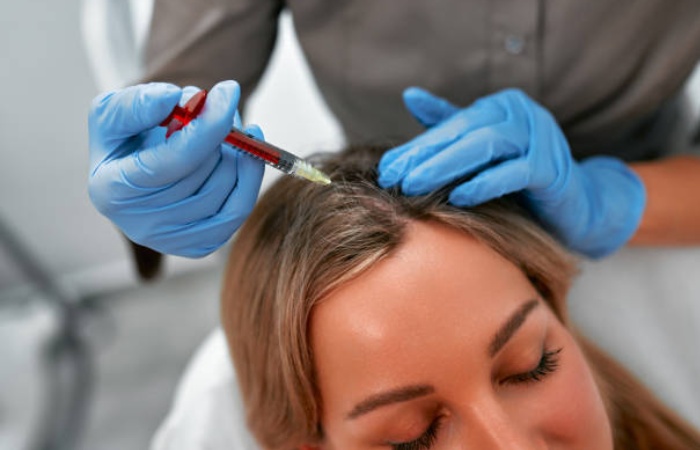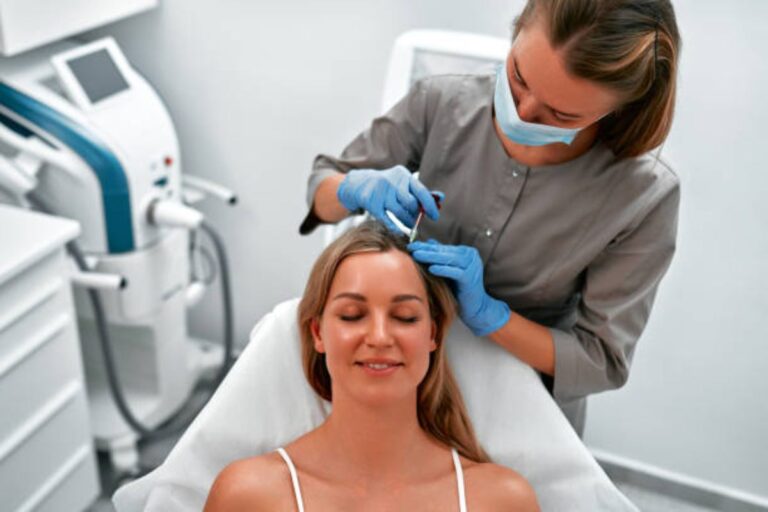Scalp Issues: A healthy scalp is the base for beautiful, vibrant hair. Unfortunately, many struggle with pesky scalp problems like dandruff, dryness, sensitivity, and itchiness. These issues can be embarrassing, frustrating, and even affect hair health. If you’re tired of fighting a flaky or uncomfortable scalp, this guide is for you. Let’s delve into common scalp concerns, their causes, and practical solutions to restore scalp health and happiness.
Dandruff: The Flaky Villain
Dandruff is one of the most widespread scalp woes. Those telltale white or yellowish flakes on your shoulders can be a natural confidence killer. Here’s what causes dandruff:
- Malassezia globosa: This naturally occurring fungus lives on everyone’s scalp. In some people, it overgrows, irritating the scalp and triggering excess skin cell shedding—those bothersome flakes.
- Seborrheic Dermatitis: This inflammatory skin condition causes red, greasy patches covered with flaky white or yellow scales – not only on your scalp but potentially on your face and body.
- Dry Skin: In some cases, simple dryness can mimic dandruff-like flaking.
Combating Dandruff
Dandruff can be a nuisance, but the good news is that there are sufficient practical ways to manage those pesky flakes. Here’s your dandruff-fighting toolkit:
- The Power of Anti-Dandruff Shampoos: These aren’t your regular shampoos. They contain specialized ingredients to combat dandruff. Keep an eye out for:
- Zinc Pyrithione: A star player with antifungal and antibacterial properties to target the root cause of dandruff.
- Selenium Sulfide: Slows down the overproduction of skin cells and tackles the fungus head-on.
- Salicylic Acid: Helps loosen and gently remove stubborn flakes.
- Ketoconazole: This powerful antifungal ingredient may be found in prescription-strength anti-dandruff shampoos.
- Tea Tree Oil: A natural alternative known for its antifungal properties.
- Exfoliate for Success: Gentle scalp scrubs help to dislodge buildup and flakes, ensuring your anti-dandruff shampoo can work its magic more effectively. Look for scrubs explicitly formulated for scalp use.
Important Tip: If one anti-dandruff shampoo doesn’t do the trick, try another with a different active ingredient. It may take some experimentation to find the best solution for your scalp.
Dry Scalp: The Itchy Desert
A dry scalp feels tight itchy, and may look flaky. Unlike dandruff, which often has larger, slightly greasy flakes, dry scalp flakes are typically smaller and drier. Causes include:
- Harsh Hair Products: Sulfates in shampoos and other harsh ingredients can strip moisture.
- Weather Extremes: Cold, dry air and harsh heating contribute to the problem.
- Age: Our scalp’s natural oil production decreases as we get older.
- Skin Conditions: Eczema or psoriasis can cause scalp dryness.
Hydrating the Dry Scalp
- Moisturizing Shampoos and Conditioners: Seek products for dry scalp with hyaluronic acid, glycerin, and aloe vera.
- Natural Oils: Coconut, argan, or jojoba oil massaged into the scalp can offer relief.
- Avoid Overwashing: Washing too frequently strips natural oils. Aim for every other day or less, if possible.
Sensitive Scalp: The Delicate Dilemma
A sensitive scalp quickly turns red, itchy, and irritated. This can be triggered by:
- Allergies or Sensitivities: Fragrances, dyes, and certain hair product ingredients are common culprits.
- Underlying Conditions: Eczema, psoriasis, and other skin issues can lead to sensitivity.
- Stress: Your scalp can reflect your inner stress levels.
Soothing the Sensitive Scalp
- Gentle Products: Look for “fragrance-free” and “hypoallergenic” labels, and choose shampoos with soothing ingredients like aloe vera or chamomile.
- Patch Testing: Before using a new creation, test it on a small area of your scalp or inner arm.
- Scalp Massages: Improve blood circulation and promote relaxation.
Additional Tips for a Happy Scalp

Beyond specific treatments for dryness, dandruff, or sensitivity, these life factors play a crucial role in maintaining a healthy, comfortable scalp environment:
Diet: Fuel Your Scalp From Within
What you eat profoundly affects your skin, and your scalp is no exception. A diet rich in these essential nutrients will support your scalp’s natural balance:
- Omega-3 fatty acids: In fatty angles like salmon and tuna, walnuts, and flaxseeds, omega-3s fight inflammation and keep the scalp hydrated.
- Water: Staying well hydrated is essential for overall health, which includes your scalp. Dry skin is more prone to dehydration and flakiness. Aim for at least eight eyeglasses of water daily.
Manage Stress: Calm Mind, Calm Scalp
Stress can manifest in surprising ways, and scalp health is no exception. When stress levels increase, your body crops more cortisol, throwing off your scalp’s oil production and potentially worsening existing problems. Here’s how to find your zen:
- Meditation: A few minutes of daily mindfulness practice can help control cortisol, reduce overall inflammation, and aid your scalp health.
- Exercise: Regular exercise is a fantastic stress reliever and boosts circulation, delivering essential nutrients to your scalp.
- Sleep: Lack of sleep fades your immune system and throws your body out of balance, making you more susceptible to scalp issues. Aim for 7-8 hours of excellent sleep each night.
Limit Heat Styling: Protect Your Hair and Scalp
While styling tools can create unique hairstyles, they also blast your hair and scalp with damaging heat. Excessive reliance on high-heat hairdryers, flat irons, and curling wands dehydrates your hair and scalp, leading to dryness, flakiness, and breakage.
Air drying: Let your hair air dry whenever possible. Using a blow-dryer, use a low-heat setting and always apply a heat protectant.
Embrace Natural Texture: When possible, skip the heat and rock your natural curls, waves, or texture for a break from styling.
See a Dermatologist: Get Personalized Expert Help
If you have stubborn scalp issues that don’t respond to home remedies or experience symptoms like severe itching, pain, or hair loss, it’s time to visit a board-certified dermatologist. They can:
- Diagnose Underlying Causes: Certain scalp conditions mimic common issues but require specialized treatment by a medical professional.
- Prescribe Stronger Medications: They may offer prescription-strength shampoos and topical or oral medications to target the problem at its source.
Product Recommendations: A Note on Choices
The best product depends on your specific scalp concerns. It may take some trial and error. Always read labels sensibly and check ingredient lists for potential irritants. Here are some types of products to consider:
- Anti-dandruff shampoos and Conditioners
- Moisturizing Shampoos and Conditioners for Dry Scalp
- Hypoallergenic and Fragrance-Free Shampoos for Sensitivity
- Scalp Scrubs and Exfoliators
- Natural Oils (coconut, argan, jojoba)
- Scalp Masks and Treatments
Conclusion
The Journey to Scalp Serenity
Your scalp is a delicate ecosystem; maintaining balance is crucial for beautiful and healthy hair. You can overcome common issues like dandruff, dryness, and sensitivity with the proper knowledge and targeted solutions. Remember these key takeaways:
Understand your scalp’s needs: Is it flaky, dry, or easily irritated? Identifying the root problem will guide your treatment choices.
- Choose the right products: Invest in shampoos, conditioners, and treatments addressing your concerns.
- Be proactive about scalp health: Nurture your scalp with a healthy diet, stress management, and gentle hair care.
- Don’t hesitate to seek expert help: If home remedies don’t improve things, consult a dermatologist for personalized advice.
By following these tips and addressing any underlying concerns, you can achieve a healthy, comfortable scalp and the vibrant hair you deserve!

